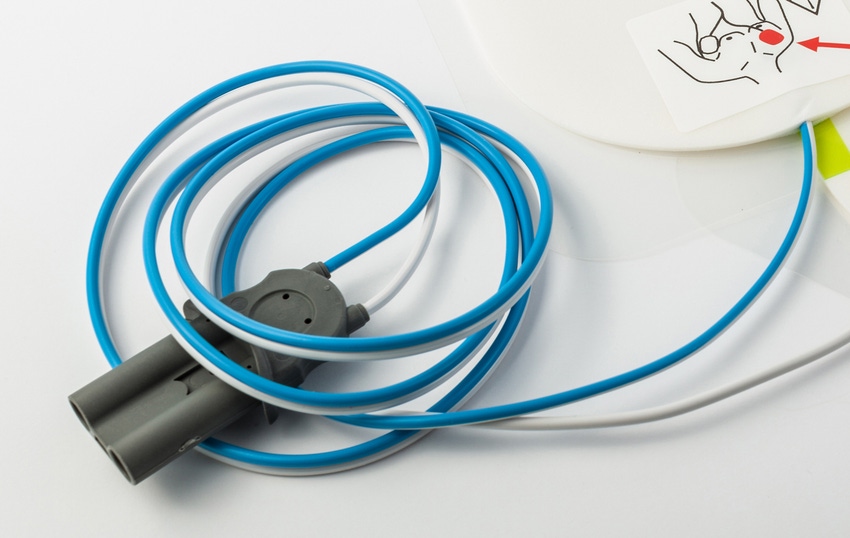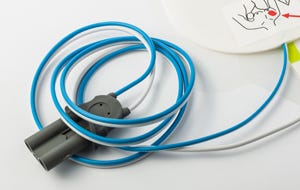A supplier of cable assemblies for medical devices has replaced thermoplastic vulcanizate (TPV) elastomers, which is a standard material for these applications, with new styrenic thermoplastic elastomer (TPE-S) compounds from Teknor Apex Co. (Pawtucket, RI). Minnesota Wire (St. Paul, MN) cites the material's performance, both initially but especially following autoclaving cycles, as a reason for making the switch. A choice of colors instead of the standard-issue natural and black also helped tip the balance.
February 3, 2014

A supplier of cable assemblies for medical devices has replaced thermoplastic vulcanizate (TPV) elastomers, which is a standard material for these applications, with new styrenic thermoplastic elastomer (TPE-S) compounds from Teknor Apex Co. (Pawtucket, RI). Minnesota Wire (St. Paul, MN) cites the material's performance, both initially but especially following autoclaving cycles, as a reason for making the switch. A choice of colors instead of the standard-issue natural and black also helped tip the balance.
The TPE-S compounds are part of Teknor Apex's Medalist range of high-purity medical elastomers.
"We've tested the new Medalist compounds and found them to have better tensile and elongation properties than TPVs before autoclaving, and to retain more of these properties after multiple autoclave cycles—an important advantage in the many medical devices intended for reuse," said Jeff Lewison, Design Engineer at Minnesota Wire, in a press release distributed today. He also praises the material's stability during extrusion and improved molding processability, which allows the use of lower pressures, thus reducing the possibility of defects when overmolding onto delicate circuitry.
 Medalist compounds also reportedly offer enhanced electrical properties, allowing Minnesota Wire to run cables with thinner walls and facilitate coiling. "The improved electrical [properties] enable us to use these compounds in insulation as well as jacketing," adds Lewison.
Medalist compounds also reportedly offer enhanced electrical properties, allowing Minnesota Wire to run cables with thinner walls and facilitate coiling. "The improved electrical [properties] enable us to use these compounds in insulation as well as jacketing," adds Lewison.
Medalist MD-8421, MD-8431, and MD-8451 elastomers can be used for insulation, jacketing, and molded fittings and connectors. They have Shore A hardness levels of 92, 69, and 82, respectively; a flammability classification of HB (UL-94); and a maximum continuous operating temperature rating of 105ºC (UL-1581). They are produced in a dedicated medical elastomers facility and have passed ISO-10993-5 cytotoxicity testing, are RoHS- and REACH- compliant, and are free of animal-derived materials, phthalates, and latex proteins.
Teknor Apex will distribute a white paper comparing test data of the three new Medalist compounds with a standard medical-grade TPV used in wire and cable at booth 2532 during MD&M West in Anaheim, CA, on Feb. 11 to 13.
About the Author(s)
You May Also Like


